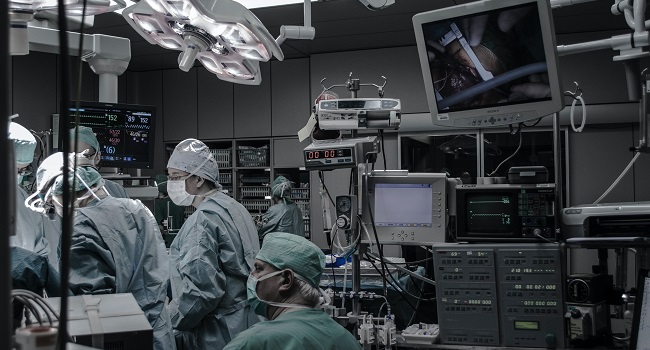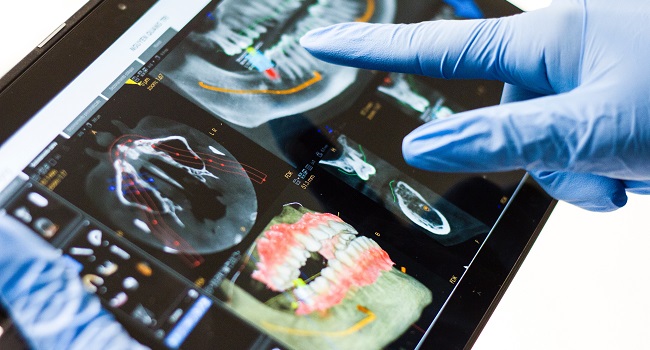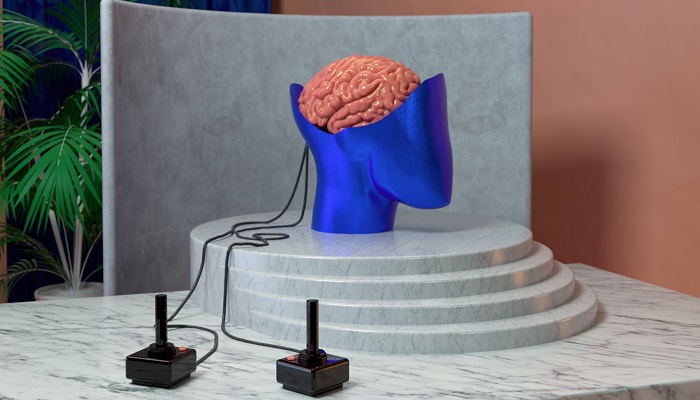Over the past decade, healthcare has experienced significant and transformative changes. The transformative power of digital technology has paved the way for innovative solutions that enhance patient care and improve health outcomes. Â
As the world grapples with the demands of an aging population, digital health technologies are crucial in meeting the challenges of providing efficient and accessible healthcare services. These cutting-edge advancements are revolutionizing patient care in various sectors, including the senior healthcare domain.Â
But what are these digital innovations, and how are they shaping and changing the field of healthcare and senior citizen comfort? Let’s find out!Â
4 Most Significant Digital Innovations in HealthcareÂ
The adoption of digital innovations in healthcare has been accelerating rapidly, transforming the way medical services are delivered and experienced. Here are six of the most significant digital implementations that are reshaping the future of healthcare, particularly in the senior healthcare sector:Â
1. Wearable Health Technology: A Revolution in Real-time MonitoringÂ
Wearable health technology has brought forth a new era of patient care and self-monitoring, revolutionizing how health data is collected, analyzed, and used. These gadgets not only allow continuous monitoring of vital health parameters but also empower patients to play a more active role in managing their health.Â
One of the primary advantages of wearable technology is the ability to collect real-time health data. This facilitates immediate intervention in case of a health concern and aids in preventive care by enabling the detection of potential health issues before they become severe.Â
Here are a few notable wearable health technology devices that have gained popularity:Â
- Fitbit: Known for their fitness trackers, Fitbit devices can monitor heart rate, steps, sleep patterns, and even oxygen saturation. It provides a comprehensive overview of an individual’s physical health and activity levels.
- Apple Watch: Beyond standard fitness tracking, the Apple Watch includes features such as electrocardiogram (ECG) monitoring and fall detection, making it an excellent device for cardiac patients and the elderly.Â
- Garmin: Garmin offers a range of fitness and health trackers that provide detailed insights into various health metrics, including stress levels and body battery energy monitoring.Â
- BioIntelliSense BioSticker: This single-use device sticks to the patient’s body and can monitor a wide range of health data over a longer period, such as temperature, respiratory rate, and heart rate.Â
- Dexcom G6: This wearable device is a lifesaver for people with diabetes. It continuously monitors glucose levels and sends real-time data to the user’s smartphone.Â
2. Telemedicine: The New NormÂ
Telemedicine has taken center stage in revolutionizing healthcare, serving as a bridge across geographical constraints and ensuring immediate access to care. By leveraging video conferencing and virtual appointments, healthcare providers can extend their reach to patients far and wide. Â
This digital shift has been particularly beneficial for the elderly challenged by mobility issues and chronic diseases, allowing them to receive crucial medical care from the comfort of their own homes.Â
Telemedicine transcends the traditional, in-person methods of providing healthcare by facilitating remote consultations, thereby reducing the need for physical travel. For seniors, this means fewer trips to the doctor’s office and less exposure to environments that might carry health risks. Â
Furthermore, telemedicine fosters better patient-doctor communication, which leads to improved continuity of care—an essential factor in managing chronic diseases often experienced by seniors.Â

3. AI in Healthcare: Redefining Diagnosis and TreatmentÂ
With its potential applications spanning from patient risk assessment to personalized treatment recommendations, AI is truly redefining diagnosis and treatment protocols. Â
By analyzing vast amounts of patient health data, AI-driven analytics can identify trends and patterns that can be difficult for humans to discern. This ability to analyze and interpret complex health data paves the way for predictive care and early intervention, thus improving the chances of successful treatment and patient recovery.Â
In senior healthcare, particularly, AI can be exceptionally beneficial. By aiding in the prediction and prevention of diseases, AI can help seniors maintain their health and independence for longer. Â
For instance, AI algorithms can identify early signs of cognitive decline or fall risk, prompting interventions before serious harm can occur. Moreover, AI can personalize treatment recommendations based on individual health profiles, ensuring that seniors receive the most appropriate care for their specific needs.Â
4. Remote Patient Monitoring: The Future of Elderly CareÂ
As the world’s population ages and the number of older adults increases, there is a growing need for innovative healthcare solutions that can efficiently and effectively cater to the unique challenges faced by seniors. Â
Remote patient monitoring services (RPM) are tailored to meet the specific needs of elderly patients, providing personalized care and improved health outcomes has emerged as a game-changing approach that addresses these needs, revolutionizing the way elderly care is provided and managed. Â
RPM devices can include:Â
1. Wearable health technology (like fitness trackers and smartwatches) that track vital signs, physical activity, and sleep patterns.Â
2. Remote monitoring devices for measuring blood pressure, blood glucose levels, oxygen saturation, weight, etc.Â
3. Connected medical devices like digital thermometers, pulse oximeters, and glucometers.Â
4. Mobile health apps that enable patients to input health data and communicate with healthcare providers.Â

Embracing the Digital Health RevolutionÂ
The integration of wearable health technology, telemedicine, AI-driven analytics, and remote patient monitoring in healthcare represents a transformative shift towards patient-centric, efficient, and accessible healthcare services. For seniors, these digital innovations hold immense promise in improving overall well-being, promoting independence, and enhancing the quality of life.Â
As the world continues to grapple with the demands of an aging population, embracing digital health innovations becomes more critical than ever. Healthcare providers, caregivers, and policymakers must collaborate to ensure that these technologies are effectively implemented, user-friendly, and accessible to all demographics, including seniors who may be less technologically savvy.Â
The future of healthcare hinges on harnessing the full potential of digital innovations to provide patient-centered care, optimize treatment plans, and proactively manage health conditions. Â
As technology advances, it opens doors to revolutionizing healthcare, making it more proactive, preventive, and personalized, benefiting patients of all ages, especially the elderly who deserve the utmost care as they journey through aging. Embracing digital health lays the groundwork for a brighter, healthier future for generations to come.Â


















